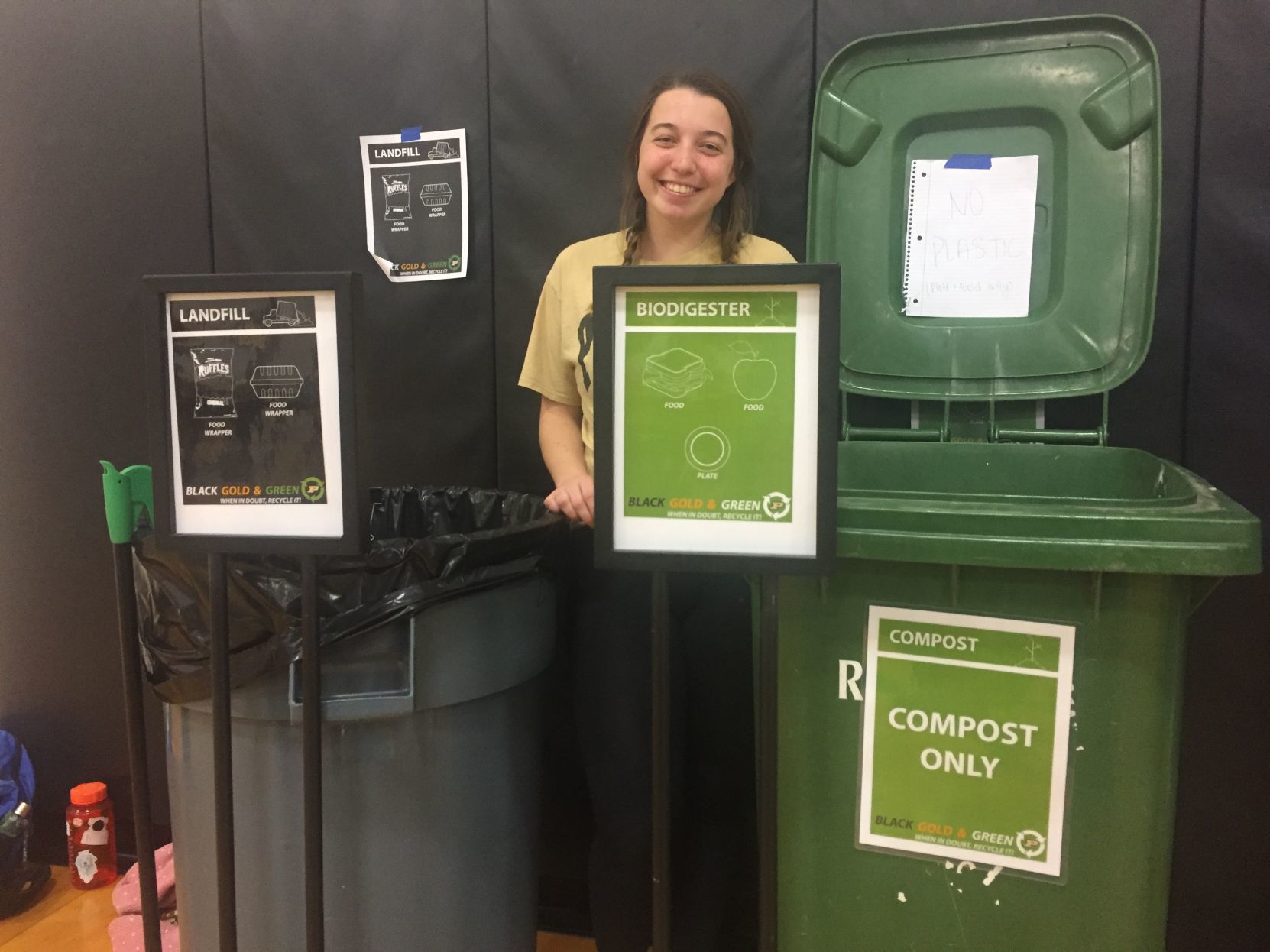Sugarcane plates sweeten the sustainability deal for PUDM

November 14, 2018
What if throwing away a reusable plate didn't mean it would be sent to the landfill?
Organizers of PUDM collaborated with the Student Sustainability Council in order to ensure the use of compostable plates, which look and operate no differently from paper plates, at the marathon.
Madeleine Henderson, a junior in the College of Engineering and the treasurer of the council, commented on the need for the plates.
"Large student events create a lot of waste," she said via email. "Most people have the conception that being environmentally friendly is not convenient or isn't possible on a large scale. We are trying to change that perception by providing options for events that are sustainable and convenient."
In the eating area of the secondary gym used during the marathon — filled with tall, cocktail-style tables as participants were not allowed to sit down for the duration of the event — members of the Student Sustainability Council advised diners on their refuse and recycling options.
A compostable plate with pizza sauce or bits of a sandwich on it could be thrown, as a whole, into a compost bin. A sign in front of the bin read "Biodigester." The compost was sent to the West Lafayette wastewater treatment plant, located south of campus. The anaerobic digester at the plant, wherein microorganisms consume the waste and secrete useful gases, can help power the rest of the treatment facility.
"Currently, the food waste and some cooking grease from dining courts is sent to the digester, but it could handle a lot more," Henderson said. "Diverting food waste from the landfill to the digester is a way to recoup some of the energy that went into producing the food, and it's a more renewable source of energy than something like coal."
Colleen Shanahan, a senior in the College of Health and Human Sciences and PUDM vice president of internal relations, said the compostable plate idea has been in the works for months.
"We sat down together in the spring to set some things up," she said. "Every time we had any problems or questions, (the sustainability council) were like, 'OK, so we can do this.'"
Shanahan explained the scope of the change to compostable plates from single-use plates, which were used in the past.
"We serve three meals to about 1,500 participants," she said. "I'll let you do the math there."
Link: https://www.purdueexponent.org/campus/article_b09d0a69-b2b2-5188-bd77-9e0443f5c5ff.html
